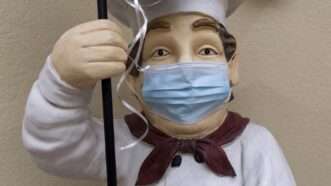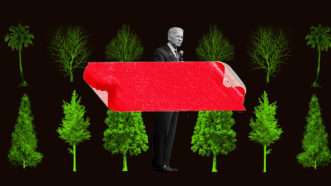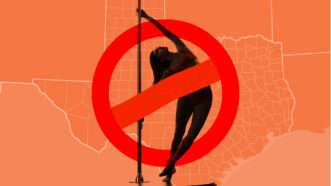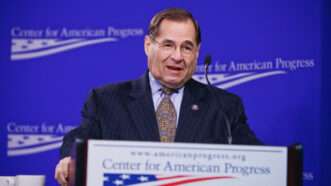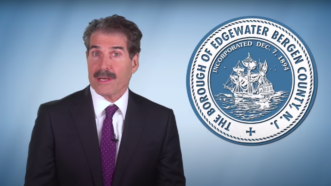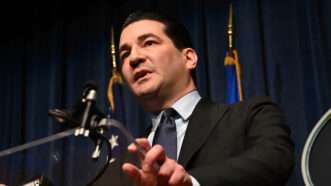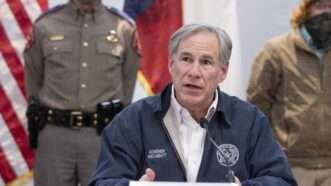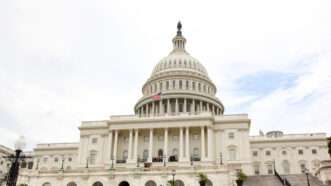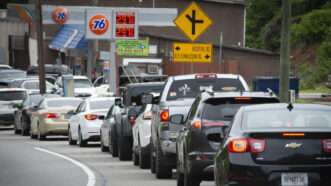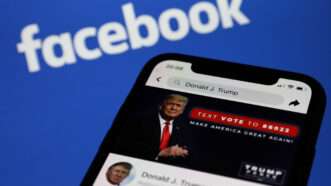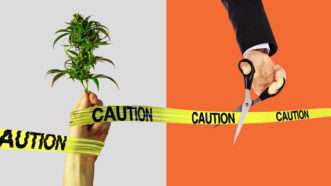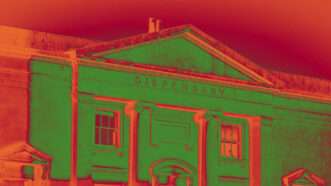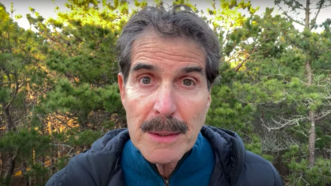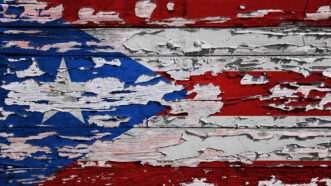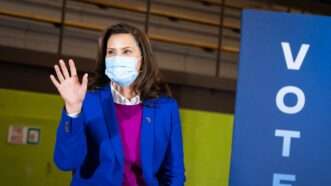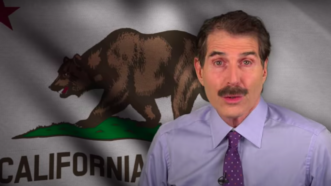Regulation
California Wants To Throw $100 Million at Its Mismanaged Retail Marijuana Sector
Lawmakers want to pay cities to help cannabis businesses navigate the state’s oppressive bureaucracy.
California Backs Off Plan To Force Workers To Keep Masking Up
The state is going to "reopen" June 15. That includes ending most mask mandates for vaccinated people.
Biden's Green Agenda Meets Environmental Red Tape
A clean-energy future will require more than just spending money.
California Politicians Craft Nifty New Idea To Increase Housing Costs
Lawmakers are proposing to create a "California Dream Fund" that would subsidize up to 45 percent of the costs of a new home.
Sweet Victories: Three States Make It Easier for Home Cooks To Be Entrepreneurs
Oklahoma, Alabama, and Montana are the latest states to deregulate homemade food sales.
Barely Legal Strippers Now Fully Illegal in Texas
The penalty for employing 18- to 20-year-olds to work nude, topless, or "in a sexually oriented commercial activity" is now 2 to 20 years in prison.
Sports Betting Pays Off
The first major intersection of college basketball and legal sports betting seems to have been a completely clean affair.
'Hero Pay' for Grocery Workers Is Terrible for Grocery Workers
Laws which mandate big wage increases for workers during the pandemic are leaving store closures in their wake.
Utah Second State To Adopt Microenterprise Home Kitchen Operations Law
Will home cooking become the new dining out?
Do Democrats Realize They Need Republican Support To Legalize Marijuana?
The MORE Act, which was reintroduced today, is full of contentious provisions that go far beyond repealing federal prohibition.
Did San Francisco's Ban on Flavored Tobacco Products Increase Teen Smoking?
Further evidence that well-intentioned regulation of vaping products can have negative consequences for public health.
A Town in New Jersey Tried To Seize This Property To Block a Housing Development, Which Has Still Not Been Built
If politicians want lower housing prices, they need to let people build more housing.
Why Does the CFPB Want To Protect Teens From Cryptocurrencies?
Rather than let students weigh crypto costs and benefits on their own, the Consumer Financial Protection Bureau claims to know best.
A Twitter Tiff Between Former Federal Health Officials Highlights the Weakness of the Case for Banning Kratom
Former Assistant Secretary for Health Brett Giroir says former FDA Commissioner Scott Gottlieb's support for a ban was based on "embarrassingly poor evidence."
New York NIMBYs Protest the 'Manhattanization' of Manhattan
The New York Blood Center wants a larger headquarters to continue its cutting-edge medical research. Activists claim the new building will cast too much shadow.
Will Pro-Life Politicians Face a Backlash If the Supreme Court Lets Them Restrict Abortion?
National surveys obscure large regional variations in public opinion about abortion limits.
Italy Moves to Protect 'Artisanal Gelato'
Italy's desire to impose "standards of identity" threatens the food freedom of eaters.
After 26 Years of FDA Delays, U.S. Consumers Can Finally Buy Genetically Enhanced AquaBounty Salmon
And it's already sold out.
ATF's Proposed Rules Threaten a Legal Mess but No End to Ghost Guns
Regulations might reshape DIY gun products, but they can’t eliminate the demand that created the industry.
How Congress Could Cement State-Level Progress on Occupational Licensing Reform
The Restoring Board Immunity Act would give states yet another reason to rein in overzealous licensing authorities.
America's Shipping Laws Made the Gas Crisis Worse
The protectionist Jones Act makes it harder to move fuel around the country.
The Colonial Gas Shortage Is Temporary, Bad Energy Policy Is Not
Making it easier to add energy capacity won’t prevent hacking hiccups, but it would help keep energy flowing.
John Samples: Facebook's Oversight Board Was Right To Uphold Trump Ban
A member of the board (and a Cato Institute vice president) defends the controversial decision to kick the former president off the social media platform.
Tepid Reopenings Are Producing the Most Absurd Pandemic Regulations Yet
Washington, D.C., policy makers are pairing their very gradual reopening with a series of complicated, confusing, and unworkable regulations.
No, Genetically Modified Mosquitoes Will Not Turn the Florida Keys Into Jurassic Park
The goal is to drastically reduce the population of disease-carrying bloodsuckers.
The FDA Wants To Lower Nicotine in All Cigarettes, Which Will Make Smokers Smoke More
This is the same agency that cost thousands of lives with its botched vaccine rollout.
The FDA's 'Safety Pause' Predictably Lowered Americans' Confidence in Safety of J&J COVID-19 Vaccine
Who could possibly have known that that would happen?
A New Study of COVID-19 Transmission Questions the Adequacy of the Six-Foot Rule and the Rationale for Many Occupancy Limits
The researchers highlight the danger posed by tiny, well-circulated respiratory droplets.
The 4 Things Many States Get Wrong When They Legalize Marijuana
Politicians and bureaucrats in legal states still struggle with the temptation to over-tax and over-regulate their legal marijuana markets.
A D.C. Blues Bar Ran a Mini-Vaccine Drive for Employees and Performers. Now Its Owner Wants the Right To Reopen.
Madam's Organ owner Bill Duggan says opening venues for the vaccinated would be a "win-win-win." Artists could perform, businesses could make money, and people would have one more reason to get their shot.
A Decade Ago, Recreational Cannabis Was Only Available on the Black Market. During the Pandemic, It Became an 'Essential Industry.'
Social distancing made the production, distribution, and sale of cannabis more challenging. People stuck home alone also boosted demand for an industry dedicated to getting you high.
Climate Change Activists Need To Get Serious About Nuclear Power
It would significantly reduce carbon emissions, but onerous regulation stands in the way.
NYT: Tech Crackdowns Are Only Bad When Other Countries Do Them
By invoking the magic of good intentions, the Times justifies the U.S. acting like Russia and China.
Arizona Governor Bans Municipal 'Vaccination Passport' Mandates
Executive order leaves it to individual businesses, not the government.
Arbitrary THC Limits Could Wipe Out Much of the Cannabis Industry
If states generally don't limit the potency of distilled spirits, why is such a safeguard necessary for a much less hazardous product?
The Government Loves To Grab New Powers in the Name of Your Safety
From protests to the coronavirus, it thinks it can protect you from anything.
Scofflaws Paved the Way for Legal Marijuana
Defying authoritarian laws helps to preserve freedom and to undermine prohibitions.
Biden Chooses Cronyism Over Letting Puerto Rico Rebuild
The Jones Act shields the American shipping industry from foreign competition and harms both the environment and disadvantaged communities.
Michigan Moving To Make 'Emergency' COVID-19 Mandates Permanent
Nothing is more permanent than an “emergency” mandate.
Why Can't You Buy a Starbucks on the Interstate?
In 1960, Congress forbid service plazas on the new Interstate highways. It’s time for that to change.
Chef Andrew Gruel on Capitalism, Cuisine, and Calling Gov. Gavin Newsom an Asshole
The founder of the Slapfish seafood chain battles arbitrary, non-scientific regulations and a punishing economy while reinventing the lobster roll.
Chef Andrew Gruel: "I'm Not an Asshole. Gavin Newsom Is."
The culinary innovator behind Slapfish on what it's been like to run a business with government at all levels arbitrarily flipping the on-off switch.
Biden Wants To 'Make America California.' Here's Why That's a Terrible Idea.
So many people are leaving the state that it will soon lose a congressional seat.
6 Marijuana Legalization Lessons
Three recently approved plans show what politicians have learned (or failed to learn) since Colorado became the first state to allow recreational use.
Why Isn't California Safer From Wildfires?
An environmental law keeps public agencies from reducing wildfire fuel.



